
|
Sustainability must be based on social ConsensusAn Interview with Prof. Frank Mantwill Sustainability means more than just reducing energy consumption and CO2 emissions. In this interview, Professor Frank Mantwill, Chair of Machine Elements and Computer Aided Product Design (MRP) at the Helmut-Schmidt University in Hamburg, talks about the conflicting goals that have to be reconciled during sustainable product development. 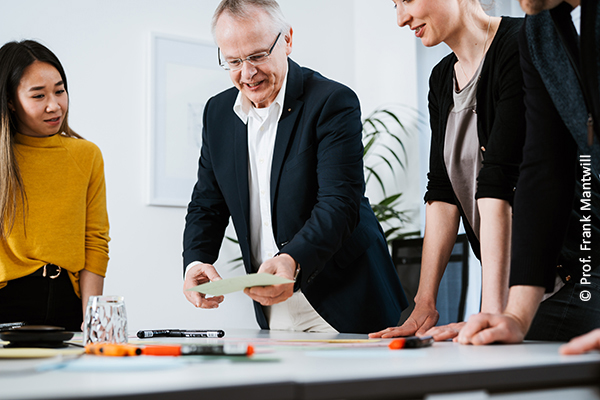
Question: The UN has defined no fewer than 17 sustainable development goals. What do we actually mean when we talk about sustainability? Mantwill: We are guided by the three fundamental elements of sustainability that are inherent in the UN’s 17 goals, that is to say, we consider the economic, environmental and social aspects. We don't just concentrate on energy consumption and CO2 emissions, but also look at planetary-level limits. In addition to the climate, topics such as the pollution of the world’s oceans and resource consumption also play a role. The basic tenet of sustainability says that we should only consume resources that can be renewed over the same period. What good is it to us if we halt global warming but restrict our available living space so much as the result of environmental pollution that life is no longer viable? 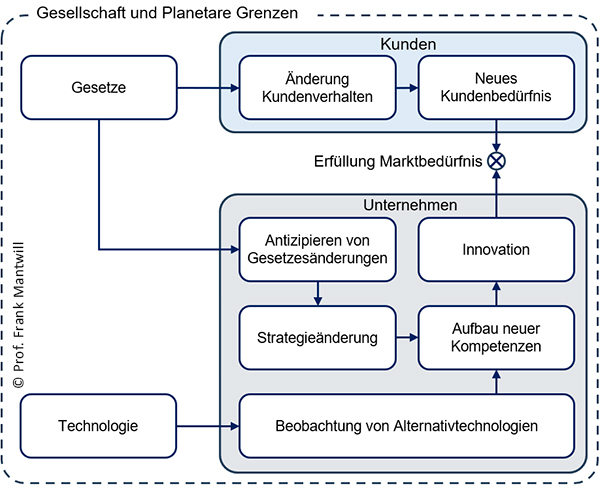
Question: Is sustainability a competitive advantage or do our companies run the risk of becoming less competitive in the face of countries that are less conscientious? Mantwill: The important thing from a business perspective is that we always need to have a customer who is prepared to pay for our sustainable product. This also depends on whether the product bought was developed in Europe in accordance with sustainability criteria, or whether it is procured through channels from countries where other criteria apply. If a company is to be successful, they always need to meet the needs of their customers, unless of course there are legal constraints that force both customers and companies in a particular direction. The EU's Ecodesign Directive only addresses the European market and raises the question of whether this is achievable at the political level. Question: Is it really possible for small and medium-sized companies to cope with the EU's environmental requirements, such as the digital product passport? Mantwill: In the Association of German Engineers (VDI), we've published a number of articles that address this and have shown that the amount of data required for the digital product passport can't be organized manually, which means that what we need is digitalization (Mantwill is a member of the Interdisciplinary Digital Transformation Committee). This is a barrier for smaller companies that can neither afford the necessary IT nor free up the human resources needed to create and update these digital product passports. Our assessment is therefore somewhat ambivalent. On the one hand, we are well aware of the opportunities for the politically motivated circular economy based on the Ecodesign Directive. On the other hand, however, we see the cost and effort involved, which could prove to be an economic barrier to entry for SMEs. 
Question: Is it actually possible to provide reliable proof of compliance with sustainability criteria in today's global value chains? Mantwill: Our conversations with the responsible individuals at ministerial level indicate that there are still numerous unresolved issues regarding the implementation of the digital product passport. This also applies to the validation of information. Your skepticism is therefore entirely justified. If it's possible to derive a business model from the digital product passport, for example for planning and managing circular processes, then I do believe that the market will ensure that the data has a certain degree of validity. If, however, the digital product passport is used for documentation purposes only, it will lead to more bureaucracy – and that is precisely what we are trying to reduce. Question: Are consumers prepared to pay more for sustainable products? Mantwill: The coronavirus pandemic and the war in Ukraine are good examples of the answer to that question as they resulted in many household budgets shrinking due to inflation. This is why they are buying more inexpensive products from discounters and fewer environmentally friendly products. It is their standard of living that determines how much customers are prepared to pay for sustainable products. Sustainability is therefore a challenge that affects society as a whole, not merely a task to be offloaded onto industry. Question: How can you make money with sustainability? Mantwill: If we can create systems that require less energy or remove CO2 from the atmosphere, then we as plant manufacturers – in particular here in Germany – will be in a position to develop new business models. That was also the approach taken by Robert Habeck, but he wasn't able to win over society and industry. I don’t think there’s anything wrong with the idea. The question is who will bear the investment costs and who has the financial resources to see it through. Question: What conflicting goals do today's businesses have to reconcile when it comes to sustainable product development? Mantwill: The UN's 17 goals and the 169 targets derived from them result in requirements relating to products and their production that are actually highly contradictory. The challenge is therefore to resolve these contradictions. This involves making decisions that we believe have to be negotiated at the societal level because it is something that is beyond the capabilities of individual companies. Companies need to know the sense in which sustainability is to be understood. Once that has been defined, the next challenge will be to guide society’s needs towards the agreed goals. A good example of this type of social transformation is the phasing out of nuclear power. 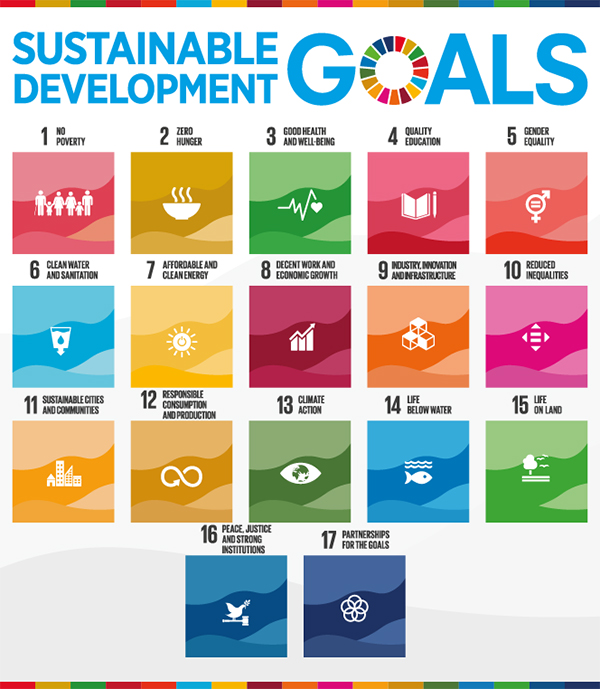
Question: Can you give us a typical example of such conflicting goals? Mantwill: One typical conflict between the UN's 17 goals is that we want to avoid child labor but, in doing so, we have to take account of the fact that we are depriving families in third-world countries of a source of income and are driving them into poverty. Question: Doesn’t a product’s sustainability also depend on how intensively it’s used? Mantwill: The most reliable path to greater sustainability is sufficiency, i.e. doing without a product or its use. But that of course poses a problem at the societal level because we are also obliged to consume. Sharing cars and therefore making more intensive use of them, for example, would be an environmentally worthwhile approach. Although this would allow us to dramatically reduce the number of vehicles, it would also mean that carmakers would do less business. So, once again, we have conflicting goals. Question: What demands does sustainability place on PLM systems and the product development process? Mantwill: As I see it, very critical ones. As mentioned earlier, a digital product passport can't be created and updated manually because it has to accompany a product instance, for example a vehicle, through its entire lifecycle. PLM is therefore the key to sustainability. Another important aspect is the product cycles. From a business perspective, they mean that we are transitioning from product development to business model development because we have to consider the product cycles early on, i.e. during product development. We therefore need to extend PLM to incorporate the product use phase. Product updates during this phase are an important way to support sustainability because they extend the product service life and reduce the number of new products needed. At the same time, however, we have to make sure that in the case of a vehicle upgrade, for example, the type approval is not invalidated and that components used for a longer time continue to operate safely. These are all things that make the development process much more complex. Question: What role does model-based systems engineering (MBSE) play in the development of sustainable products? Mantwill: MBSE is used to make the development of complex products easier. Sustainability is making products more complex because we have to take account of additional requirements and think in terms of product cycles, for example by considering leasing models, sharing concepts, etc. MBSE makes it possible to systematically capture these requirements, supports the resolution of conflicts, and makes sure that we are better able to trace and document the way requirements are implemented. Seen in this light, its use is a vital prerequisite for sustainable product development. 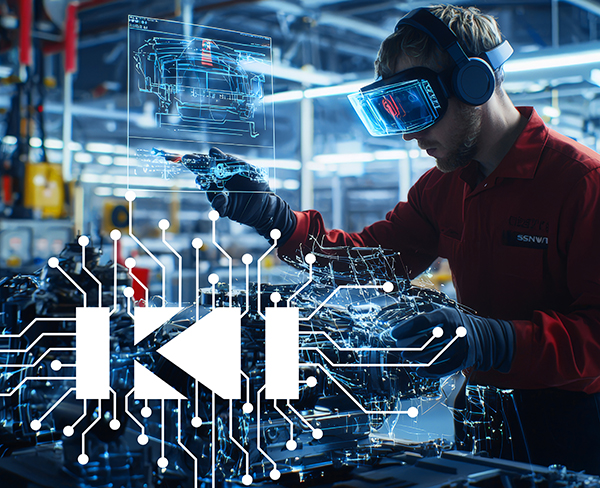
Question: Can artificial intelligence (AI) help with sustainable product development and if so, how? Mantwill: Yes, of course it can. If we look at large language models, in particular, I can identify two possible applications: The first is to use ChatGPT, for example, to acquire a societal cross-section of information. That will allow us to use prompts to verify the market acceptance of sustainability-related aspects in product development that we consider to be of social value. The other is that AI can make it possible for anyone to analyze faulty products in order to obtain information about how they can be repaired and what parts are needed to do this. After all, it’s now a legal obligation for products to be repairable. Question: How are new business models such as the provision of products as a service helping increase sustainability? Mantwill: If I offer a product as a service, I have greater leverage when it comes to developing it in such a way that makes it particularly long-lasting – which doesn't mean that companies nowadays deliberately develop their products to wear out quickly. It depends on the demands that the customer places on the product. In industrial contexts, companies always tend to use their capital goods around the clock. So I don’t see there being any great benefit in this area. Benefits are more likely in the consumer sector. The product as a service is a move in the direction of the circular economy, i.e. toward this whole sharing concept where we use vehicles or other products for longer. The difficulty lies in creating these business models, i.e. creating a society of sharers rather than a society of owners. Question: How does the sustainable product development research unit at the MRP help companies achieve their sustainability goals? Mantwill: One way we help is by creating a close link between our research and our teaching activities and by gearing our courses very much towards sustainability. We perform our research together with industry partners, for example researching the creation and publication of digital product passports. In another project, we’re developing MBSE models for the requirements resulting from the UN’s 169 targets and demonstrating how these models can improve development work. All these results also feed into an open-source development environment in which we make not only data and facts available but also tools for knowledge transfer, for example a legislation finder that makes it possible for companies to see which sustainability-related laws exist and which products will no longer be approved in the future. The environment is called USED and can be accessed via the Internet. 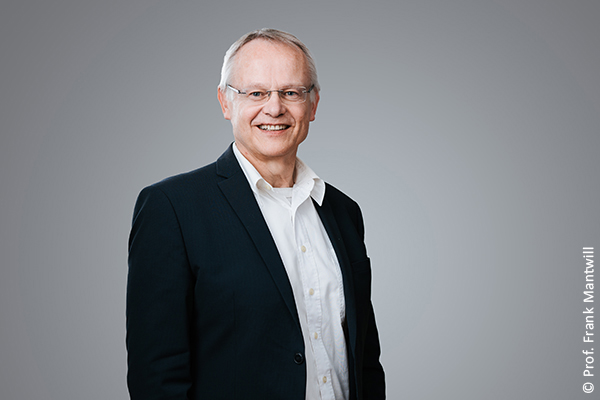
Professor Mantwill, thank you very much for this interesting interview. About Professor Mantwill Frank Mantwill has been Chair of Machine Elements and Computer Aided Product Design (MRP) at the Helmut-Schmidt University in Hamburg (HSU) since 2004. Mantwill studied mechanical engineering at the RWTH Aachen University and completed his doctorate in AI-assisted design at Hamburg University of Technology in 1992. He held management positions in industry from 1992 to 2003, most recently as Head of Production Planning Bodywork at Audi. Mantwill served as chair of the VDI's advisory committee on Product Development and Mechatronics from 2010 to 2025 and has played the same role in the VDI Product and Process Design Association since 2024. He is also a member of the VDI’s Interdisciplinary Digital Transformation Committee, which examines socially relevant issues relating to digitalization. |
|
| © PROSTEP AG | ALL RIGHTS RESERVED | IMPRINT | PRIVACY STATEMENT | YOU CAN UNSUBSCRIBE TO THE NEWSLETTER HERE. |
